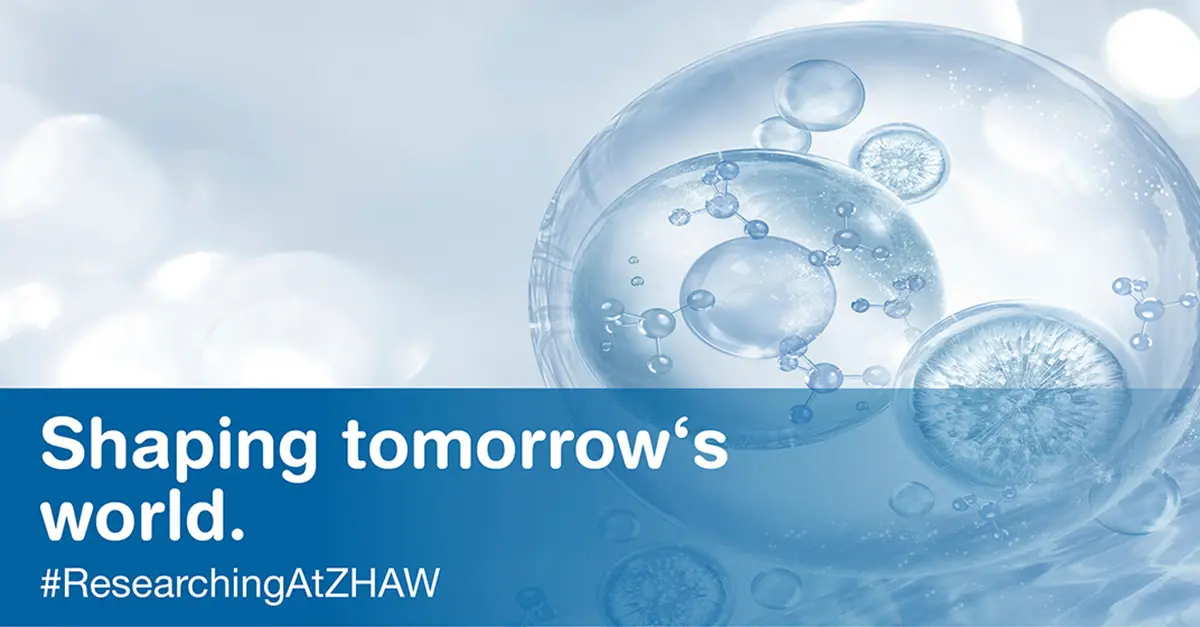PhD Position: Low Code & No Code software engineering for freezing of gait in Parkinson's disease 100%

Do you want to do research on the frontiers of software engineering for Freezing of Gait in Parkinson's disease personalized interventions? The Antifreeze project team welcomes you as a PhD student to develop Low Code & No Code software engineering artefacts.
School: School of Engineering
Starting date: 1. February 2026 or earlier for 36 months
Your role
The PhD Position is fully funded by the Antifreeze project and the ZHAW School of Engineering. The PhD will be carried out over a period of 36 months under the advisory of Prof. Dr. Marcela Ruiz (ZHAW) and Prof. Dr. Robert Riener (ETH). We look forward to welcoming a team player and enthusiastic PhD candidate to join our Antifreeze research team working on the assessment, evaluation, and creation of personalized interventions for freezing of gait in Parkinson's disease.
Freezing of Gait is a frequent and debilitating condition in Parkinson's Disease, for which there is no proven therapeutic approach. The AntiFreeze project investigates the use of virtual reality (VR) and augmented reality (AR) to assess, evaluate, and train strategies to avoid Freezing. Antifreeze also researches and develops low code and no code software engineering artefacts to enable clinicians to rapidly personalize interventions tailored to each patient.
The successful candidate will work on the frontiers of software engineering by researching, designing and implementing novel low code & no code artifacts to support clinicians in the task of creation and personalisation of freezing of gait interventions using VR and AR technologies.
The successful PhD candidate will work together with an interdisciplinary team of computer scientist, neurologist, and rehabilitation robotics to investigate the problem, design a solution, and perform experimental validations. The PhD student should satisfy the criteria to be accepted at the ETH Zurich. Results of the research should satisfy the ETH Zurich standards for a successful PhD thesis.
Your profile
- Team player and socially competent to join an interdisciplinary team of computer scientists, neurologists, biomedical and health innovation scientists.
- Good communication skills, willingness to work in collaborative projects with multiple partners, write and present results at journals, conferences, university events, and project meetings.
- Excellent master's degree in computer science, STEM, health and life sciences and technology, or a related discipline from a university or university of applied sciences.
- Sense of responsibility and self-motivation to achieve the PhD goals independently and contribute effectively to the Antifreeze team.
- Nice to have: basic knowledge in computational thinking, conceptual modelling, model-driven engineering, low-code & no code tools, robotics rehabilitation, VR and AR.
- Enthusiasm, empathy, and commitment to work in the domain of health sciences and technology to conduct experiments in controlled and clinical environments.
- Your application to this PhD position should include a motivation letter, curriculum vitae (including publications, prices, if available), 2 reference names with contact details, a research statement indicating the skills you have and want to learn during your PhD as part of the Antifreeze project, and master diploma together with the bachelor and master grades.
This is what we stand for
Zurich University of Applied Sciences ZHAW is one of Switzerland's largest multidisciplinary universities of applied sciences, with over 14'000 students and 3'400 faculty and staff.
As one of Switzerland's leading educational and research institutions, the School of Engineering (SoE) focuses on topics relevant to the future. Fourteen institutes and centers guarantee high-quality education, research, and development with a focus on energy, mobility, information, and health.
The Institute of Informatics (InIT) focuses on distributed systems, human-centered computing, information security, intelligent information systems, and software engineering. We research and develop innovative information technologies, software systems, and services in collaboration with partners from industry and academia.
The Software Engineering Research Group focuses on current topics in the development of automated methods and tools to support software engineering and application generation, such as no-code/low-code software engineering, sustainable digitalization, and software quality. In addition, we are experts in empirical software engineering to ensure the successful development and transfer of our research products into practice.
ZHAW is committed to gender-mixed and diverse teams in order to promote equality, diversity and innovation.
Das bieten wir an
Wir bieten hochschulgerechte Arbeits- und Anstellungsbedingungen an und fördern aktiv die Personalentwicklung unserer Mitarbeitenden und Führungspersonen. Eine detaillierte Beschreibung der Vorteile ist auf der Webseite «Arbeiten an der ZHAW» zu finden. Hier die wichtigsten Eckpunkte:

Contact
Prof. Dr. Marcela Ruiz
Head of Research Group Software Engineering
Jocelyn Schaad
Recruiting Manager

Weitere interessante Angebote
Arbeiten an der ZHAW
Wir bieten hochschulgerechte Arbeits- und Anstellungsbedingungen und fördern aktiv die Personalentwicklung unserer Mitarbeitenden und Führungspersonen.
Mentoring
Die ZHAW sieht eine ausgewogene Geschlechtervertretung in Führungspositionen als Vorteil für die Hochschule.
Welcome Center
Das Welcome Center der ZHAW gibt Ihnen einen Überblick und Informationen zum Leben und Arbeiten in der Schweiz.
Arbeiten an der ZHAW
Mentoring
Welcome Center
Wir bieten hochschulgerechte Arbeits- und Anstellungsbedingungen und fördern aktiv die Personalentwicklung unserer Mitarbeitenden und Führungspersonen.
Die ZHAW sieht eine ausgewogene Geschlechtervertretung in Führungspositionen als Vorteil für die Hochschule.
Das Welcome Center der ZHAW gibt Ihnen einen Überblick und Informationen zum Leben und Arbeiten in der Schweiz.